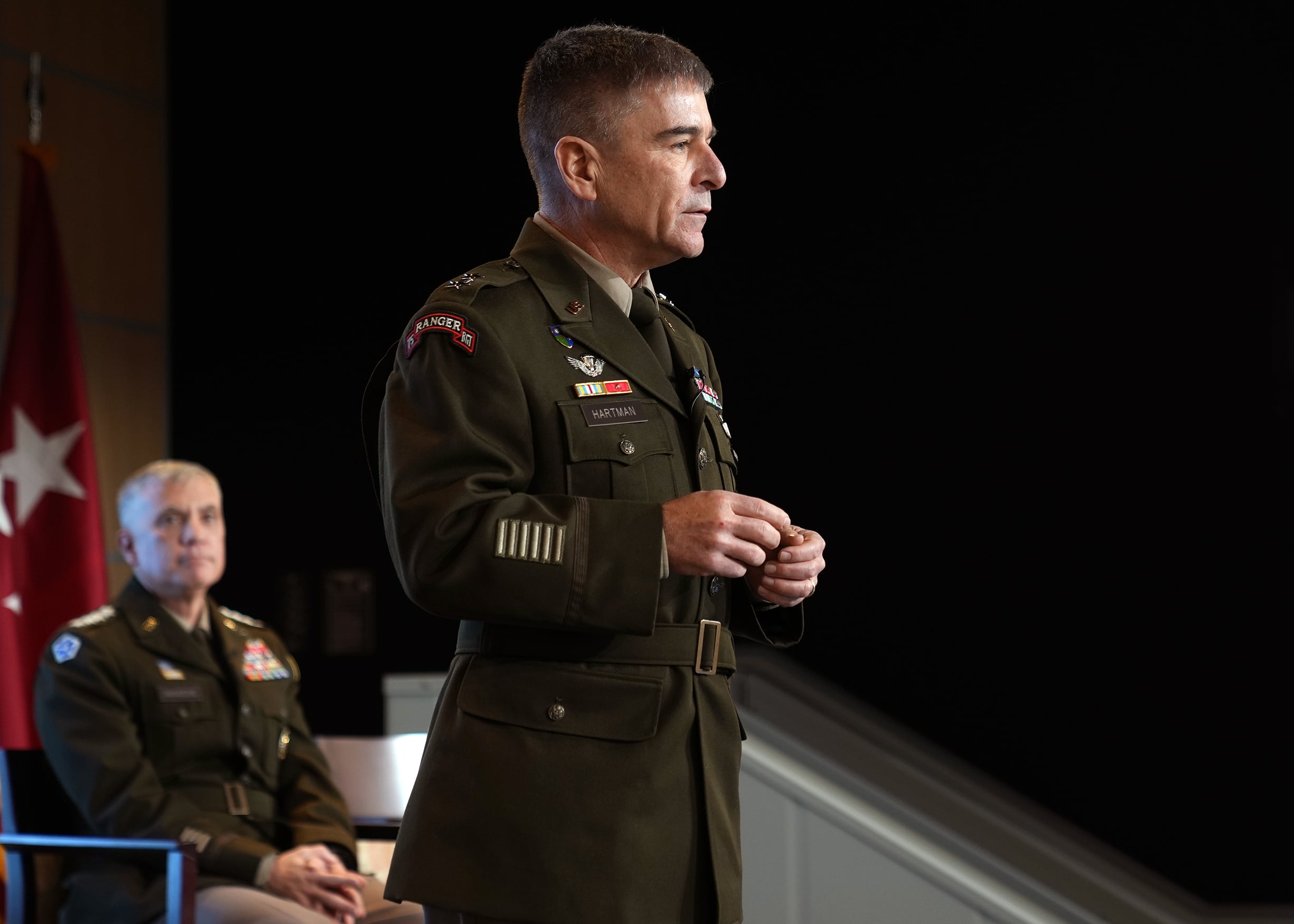McLEAN, Va. — U.S. cyber specialists were sent south to identify digital weaknesses on foreign networks and expose tools hackers employ, according to an official with Cyber Command.
The so-called hunt-forward mission, handled by experts on the Cyber National Mission Force, was conducted inside Southern Command’s area of responsibility, which comprises more than two-dozen countries such as Argentina, Brazil, Jamaica and Nicaragua.
“We had our first defend-forward mission, a hunt-forward mission, in SOUTHCOM just recently, which is amazing,” Brig. Gen. Reid Novotny said June 8 at the Potomac Officers Club’s Cyber Summit in McLean, Virginia. “The whole point of the defend-forward mission is to learn something on someone else’s network, a partner network, another nation’s network, so we can bring back that information and make sure our networks are more secure.”
Novotny did not say when or where, exactly, the hunt-forward took place. Inquiries made by C4ISRNET to CYBERCOM on Thursday were not immediately answered.
RELATED

Hunt-forward missions are defensive measures taken by CYBERCOM at the invitation of another government. The international endeavors are often disclosed well after the fact — or not at all, depending on agreements made. The Cyber National Mission Force has deployed dozens of times across at least 22 countries, including Ukraine, ahead of Russia’s latest invasion; Albania, in the wake of Iranian cyberattacks; and Latvia, where malware was unearthed.
The intelligence gathered on the trips is used to strengthen both foreign and domestic cybersecurity practices.
Maj. Gen. William Hartman, the commander of the mission force, in May said adversaries often use “spaces outside the U.S. as a test bed for cyber tactics.” Hunt-forward missions, he continued, help identify and classify “that activity before it harms the U.S., and better posture the partner to harden critical systems against bad actors who threaten us all.”
Colin Demarest was a reporter at C4ISRNET, where he covered military networks, cyber and IT. Colin had previously covered the Department of Energy and its National Nuclear Security Administration — namely Cold War cleanup and nuclear weapons development — for a daily newspaper in South Carolina. Colin is also an award-winning photographer.








